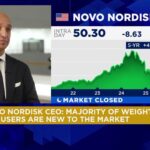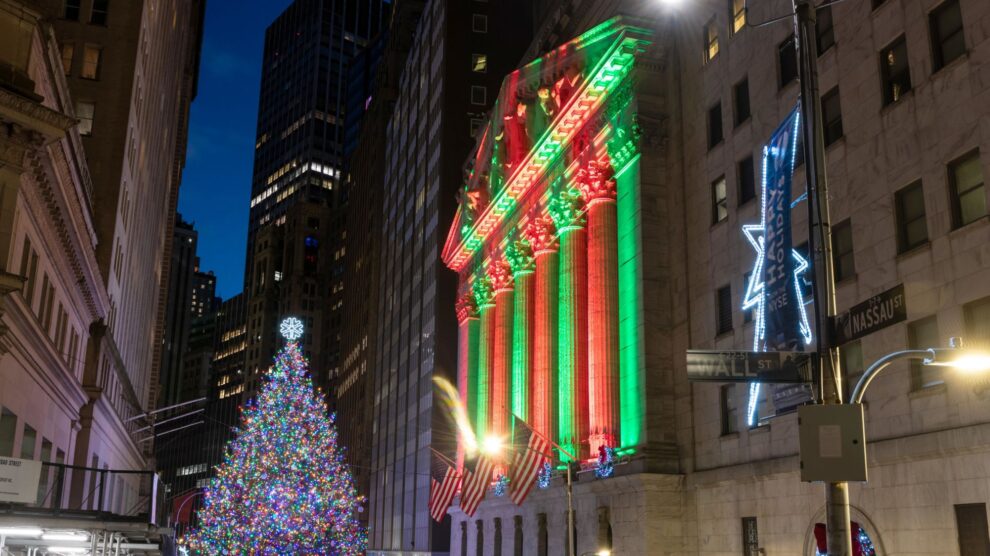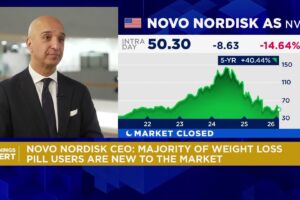Clark Kendall, President and CEO of Kendall Capital, joins Yahoo Finance’s Seana Smith to discuss his thoughts on the markets and whether any upward momentum can be carried over into 2021 for investors.
Video Transcript
SEANA SMITH: Joining us now for this episode of Yahoo Finance Presents presented by T. Rowe Price, we want to bring in Clark Kendall. He’s the president and CEO of Kendall Capital. And Clark, great to have you on the program. Happy new year. It’s been quite a year for the markets to say the least. As we do close out this year and look ahead to 2021, I guess the big question is whether or not this upward momentum that we’ve seen in the market this year is here to stay.
CLARK KENDALL: Well, I think before we could look to 2021, we got to look at the rearview mirror as far as what happened in 2020. In many respects, it was an unusual year, but also, in many respects, it’s history repeating itself. Remember, we had the pandemic. We had the economy shut down quite hard.
But what made 2020 so unusual was the dramatic increase in labor productivity. It grew 10 and 1/2% during the second quarter, 4 and 1/2% during the third quarter. And on an historical basis, GDP– I mean, labor productivity really only grows 1% to 2%. So there was it became a bifurcated market. Those who worked did well and were paid well. Those who didn’t work were left behind, quite frankly.
SEANA SMITH: Well then, Clark, how are you positioned then for next year, taking all that into account and knowing that history does tend to repeat itself? I know you were on Yahoo Finance back in July. You recommended buying small caps at that time. If you look at the Russell Twins performance since then, up just over 30%. Is there still reason to buy those small caps? And where else are you seeing opportunity?
CLARK KENDALL: Well, we do continue to see value in the marketplace. Remember, investments all boil down to a return to cash flow and the predictability. I call on– sometimes it’s easy to know where not to invest. And I point out one thing not to invest in is the fixed income market. Our Jerome Powell has basically said he wants 2% inflation rate, yet we have the 10 year treasury at 0.8%, 0.9%. I call them the COVID success stocks. The Zooms, the Pelotons, the Teslas are priced to perfection in this low interest rate environment.
If they have any type of hiccup, those stocks fall apart. And remember, I go back to the– history repeats itself. 1950s, 1 out of 13 women worked as telephone operators. And through technology, labor productivity, they had a decade of women going, you know, losing their jobs back in– we also had the ’70s. The nifty ’50 stocks. We had Eastman Kodak, and Coca-Cola, Hewlett Packard, that traded like the Zoom stocks today. They took over 20 years to recover.
And I go back also just to kind of drive home my point. 1999, we had the Y2K stocks, the AOL, Ameritrade, and Sun Microsystems. A lot of us have not recovered. So I’m being long-winded in answering your question. So stay away from the success stocks. Stay away from the fixed income.
Where do we see value? The dogs are the Dow, quite frankly. Nobody talks about they’ve underperformed this year. You can buy things like Walgreens, Verizon, Dow Chemical, Amgen, 3M– all of them have over a 3% dividend yield. You know, you can sit back and collect a relatively fat dividend while you wait for these companies to come back.
The second tier, kind of the continuing the Russell 2000. It’s had a strong move, as you pointed out, the fourth quarter. I still think there’s some great companies there. Brunswick Corporation. Yeah. They sell fishing boats. Can you believe that? You know, they have strong profit margins. Everyone’s getting a fishing boat today at only seven times cash flow. United Rental. O’Rielly. There are some just great companies six, seven, eight times cash flow. There’s the opportunity in today’s market.
SEANA SMITH: Clark, we only have about a minute left here, but I want to ask you about energy. We were just talking about it a couple of minutes ago with our own Jared Blikre, but the SLE is off, what, just around 35% this year. We have seen it bounce back a little bit in the fourth quarter. Are you seeing any opportunity within the energy sector, and specifically the expectations are for crude?
CLARK KENDALL: Yeah. As I said, I’ve got four cars at home, all of them gas guzzlers. The kids, my wife drives them. And we still fill them up with gas. I still prefer to have a warm home in the winter time. So people will continue to use gas, even though I think the Teslas and the EV will be a part of our economy just like 20 years ago, we thought computers and Qualcomm would all be a part of our economy.
So yes, I think there’s great opportunity. The energy sector is, what, only 1% to 2% of the S&P. You know, I would be very careful. But Chevron, Exxon, I still believe have a very good dividend yield, and there is opportunity. But you’ve got to manage that within reason.
SEANA SMITH: All right. Clark Kendall, president and CEO of Kendall Capital. Great to have you on the program. Very happy new year to you.
CLARK KENDALL: Happy new year.







